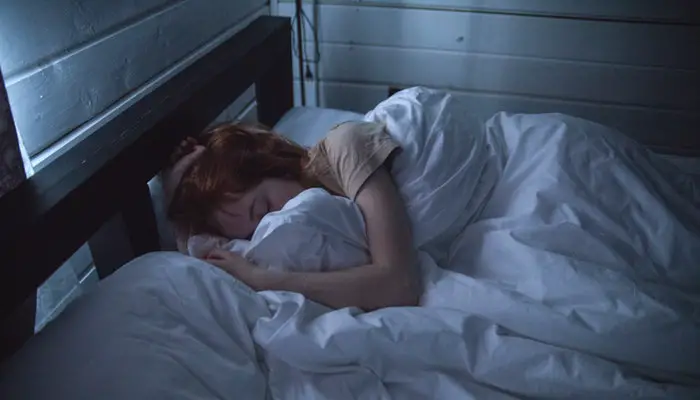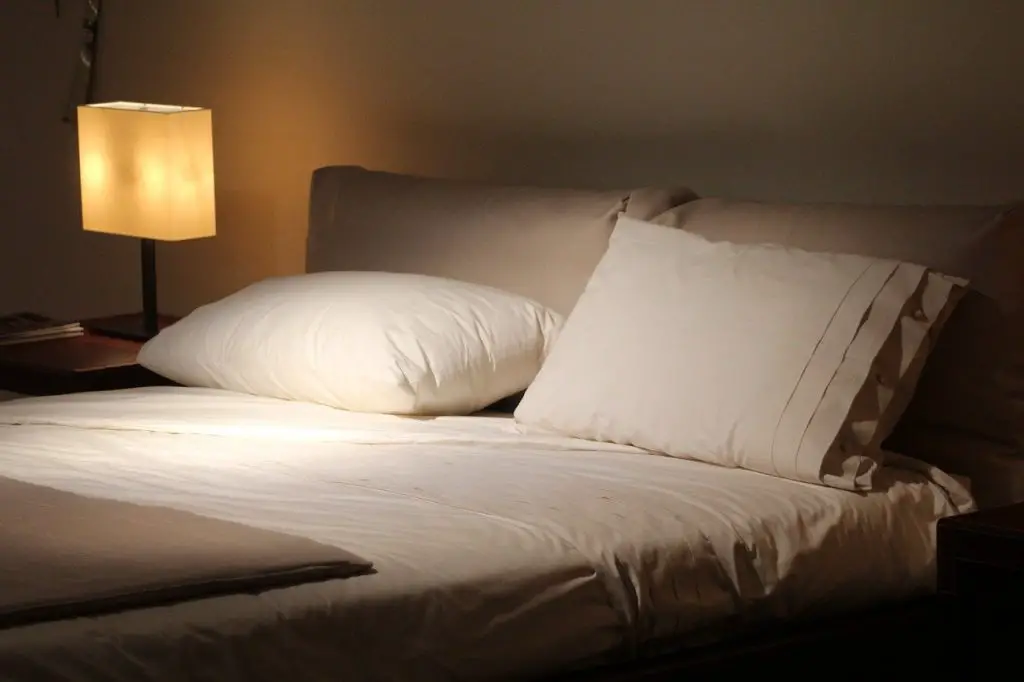On average, a person may sleep 229,961 hours in their lifetime, given they spend 8-hours every day sleeping. This number is something to strive for since it means you are having a healthy dose of sleep your body and mind need to function properly.
However, many of us sacrifice sleep when young, but spend more time sleeping from 60 years of age and older. This doesn’t mean you will compensate in your old age for the sleep you lost when you were a teenager. Unfortunately, that’s not how things work. More likely, you may experience the consequences of having such low quality of sleep, even if it happened decades ago.
Why is sleep so powerful for our body and mind? How can we improve our behavior regarding this necessary activity? Let’s talk about the mechanism of sleep, the ways it affects us, and things we can do to improve it.

Why do we sleep?
Several theories are out there trying to explain the reasons why humans sleep:
- Energy Conservation Theory believes that humans sleep to save their energy to do important survival activities during the day, like hunting.
- Brain Plasticity Theory goes more into the brain function, stating that sleep is when neural development takes place.
- Restorative Theory also deals with internal processes, like regeneration and repair of cells.
- Inactivity Theory relies on practical aspects and believes that humans sleep at night because they can’t see in the dark and so it’s a way to avoid injuries.
Each of these theories is true, but one of them is not enough to define a complex process that is sleeping. Humans can’t go without sleeping at all and it’s an unavoidable part of our lives, like breathing or eating.
We don’t sleep only when tired, but also when sick, depressed, or in other states which require more than the restoration of energy to feel better. This means that sleep has a wider effect on our body, influencing such vital systems as immunity and hormonal balance.

Importance of stages of sleep
You probably know about the REM stage, also known as rapid eye movement. If anything, you saw someone asleep moving their eyes under the eyelids. But this is not the only sleep stage. One sleep cycle consists of four stages of sleep and one night of sleep can have several of these cycles, each lasting from 90 minutes to two hours. Every stage has a purpose and role to have a quality sleep:
Stage 1 — It is a non-rapid eye movement or NREM stage called the light sleep. This is when your brain waves, heartbeat, and breathing are slowing down to ease you into a state of sleep from wakefulness. Tension leaves the muscles and they start to relax. Stage 1 lasts for only a few minutes.
Stage 2 — This is also an NREM stage when you go into a deeper sleep. Heartbeat and breathing are slowing down more, and your body temperature starts to decline. At this point, your muscles become more relaxed, while your brain waves stay the same. Stage 2 is the longest in a sleep cycle.
Stage 3 — A third NREM stage has the lowest activity of your body systems. This stage is responsible for how rested you will feel when you wake up. Stage 3 has different durations, being the shortest in the last cycle before you wake up.
Stage 4 — The final stage is REM when you experience dreams. Although your heartbeat, breathing, and blood pressure are going up, your limbs are paralyzed to prevent movement as a reaction to events in your dreams. This is when your brain performs memory consolidation, a process of converting daily experiences into long-term memories. The first REM lasts about 10 minutes and the following ones get longer and longer as you sleep.
What quality sleep means for the body and mind
As mentioned before, heartbeat, brain waves, breathing, and muscles change their behavior during sleep. All this can save as much as 35% of the body’s energy according to Markus Schmidt and his team from Switzerland and the USA who performed calculations in the 2017 study. Our immune system depends on having quality sleep, as well, since this is when antibodies and other defender cells are produced.
Besides reorganizing and storing memories, the brain eliminates waste from the central nervous system through a macroscopic clearance system called the glymphatic system. Sleep improves brain functions, like learning, focus, problem-solving, and decision-making, allowing us to gain new skills and deal with day-to-day tasks.
During sleep, the body also regulates hormones, like ghrelin and leptin. These hormones are responsible for hunger and satiety, respectively, so their imbalance can cause weight gain. Stress hormone levels should go down and you should feel more relaxed thanks to a rise in melatonin, a sleep hormone. While some parts of your body are slowing down, others are busy and working on improving your well-being.
Things that can ruin sleep
Even with your best efforts, you may experience problems falling asleep or waking up frequently at night. Lights coming from the outside, traffic noises, filters from the fish aquarium, wall clock ticking, and your partner’s snoring are some of the reasons you sleep poorly. You may feel too cold or too hot, the bed linens may feel uncomfortable to the skin, and the mattress is too soft or hard to sleep on.
However, you still have options to improve these conditions or make them go away completely. Firstly, always buy pillowcases, covers, and bed sheets made from natural and soft fabrics, like cotton, and change them at least once a week. If your bed is too small or the mattress is uncomfortable, you always have affordable options to buy new ones. The idea is that your bed will be so cozy that you will be eager to go to sleep.
Diet can also affect the quality of sleep, so try not to eat two hours before going to bed and make your dinner light. Drapes over windows will darken the room, while earplugs will give you the quiet you need to fall asleep. Replace your TV and smartphone with a book and lull yourself to sleep by reading a chapter or two every night. Lastly, if your partner snores, ask them to wear an anti-snoring device and see a doctor since it may be a sign of some underlying condition.

How sleep deprivation affects the health
Sleep deprivation is a state caused by lack of sleep, inadequate quality of sleep, and disruption of the circadian rhythm. This can happen voluntarily or involuntarily, with the main causes of lack of sleep being work, school, partying, and use of electronic devices. Sleep is not something you can make up for, but an activity you have to be consistent about to avoid negative effects on your mental and physical health.
Lack of sleep may cause diabetes, high blood pressure, weak immune system, depression, anxiety, and other health conditions. If you happen to lose a few hours of sleep, you can feel better after a 20-minute power nap or sleeping longer the next day.
But chronic sleep deprivation needs more dedicated lifestyle changes to prevent it from causing health problems. Stop smoking, drink less alcohol, don’t eat heavy meals before bed, and go to bed at the same time every night may be a good start to not only sleep better but also be healthier.

Ways to improve the quality of sleep
Sleep quality depends on lots of things. For example, having trouble falling asleep shortens the time you spend sleeping. Waking often during the night disturbs the sleep stages, while willingness to sacrifice a few hours of shuteye for something else can leave you with sleep deprivation.
However, an approach that improves sleep for someone else may not work for you at all. So, instead of concentrating your efforts on one method, try various ones until you find the one for you. Not using your phone, tablet, or TV before bed will prevent blue light emitted from the screens to trick your body into believing it’s daytime. Moreover, social media, news, and other e-content may only make you upset or sad, ruining a chance to fall asleep at all.
Doing something relaxing before going to bed, like stretching, can help you relieve tension from your muscles, calm your mind, and reduce stress. Meditation is an excellent technique to center on positive and abandon negative thoughts through breathing and focus exercises. Cognitive-behavioral therapy (CBT) can help you resolve problems, treat anxiety and depression, and show you how to improve your mental health.
Final thoughts
When we don’t eat enough, we feel weak and lightheaded. When the air is polluted, we start coughing and being out of breath. Sleep is equally important. It’s so powerful for our body and mind that we can get seriously sick and even die without it. Try to find what will improve your quality of sleep, and stick to it, although sacrificing a few hours of shuteye from time to time may be tolerated. Just don’t make it a habit.





